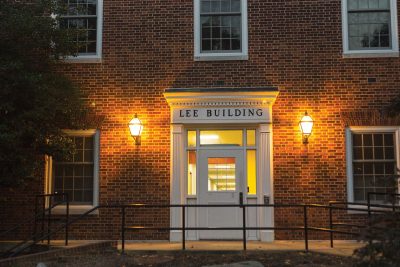Since the University of Maryland announced last month it would not be offering undergraduate students a pass/fail option for the courses they’re currently taking, the SGA and RHA have both issued resolutions condemning the school’s decision and urging administrators to reconsider.
On Friday, Graduate Student Government representatives chimed in on the school’s decision, contributing to the ongoing discussion on what they’ve observed as teaching assistants this semester and last.
This is Valerie Hall’s third time working as a teaching assistant for an anthropology course. Compared to the previous semesters, she said she has seen a significant increase in the number of students attending office hours and trying to stay engaged. However, she said there have been more students turning in assignments late.
But Hall said she understands: Undergraduate students are overwhelmed with the challenges brought by the online environment and ongoing pandemic and some of their professors are not being flexible about deadlines. Hall has seen students who are working to support their families, struggling to pay their rent and coping with the death of family members. Others have come down with the virus themselves.
For these reasons, among others, Hall — the GSG’s anthropology representative — said she supports extending the option for students to take courses pass/fail this semester.
In an email announcing the university’s decision, Provost Mary Ann Rankin explained that administrators worried implementing a pass/fail grading system would have negative consequences for students’ academic careers and post-graduation plans — some graduate schools may be put off by seeing a “P” or “F” on a student’s transcript, for instance.
But Hall said that concern would likely not be relevant to every student.
“I think the reality for most of our students is that they’re going to be out in the workforce,” Hall said. “Grades do not carry the weight in the real world that they carry inside the institution, and I feel like the administration has maybe forgotten that.”
[Students petition UMD to return to pass/fail grading for hybrid semester]
Tamara Allard, a TA for a neuroscience course this semester and the GSG’s psychology representative, echoed Hall. During her office hours, she said, she is constantly booked, even during Thanksgiving week.
The nature of her help goes beyond the normal role of office hours. Along with the extra responsibilities of her own classes and mental health struggles, Allard finds herself taking on the stress of her students, making her job more taxing this semester.
“Oftentimes it feels a little bit like you become a therapist in your office hours,” Allard said. “You’re taking on the role of trying to mitigate their stress as much as possible.”
Hall and Allard also said they’ve seen an increase in cheating this semester. In past semesters, Hall said only one or two of her students would be caught plagiarizing answers. This semester, she said, she has seen at least half a dozen.
But both of them said they don’t think this increase in cheating is because students have negative intentions. Hall said citing sources may just be falling under the radar for some, especially while they have so much else to worry about on top of their grades. Allard believes some may be turning to cheating because they’re especially stressed and desperate.
She also said some of these issues stem from further equity issues that may prevent students from repeating a class or moving forward in their programs.
Allard is a TA for an introductory course that is the basis for the entire neuroscience major track. If students don’t do well enough, Allard said they may withdraw or need to take the course again — something that isn’t financially feasible for everyone. And, she said, the students who are struggling the most are often the ones living in environments not conducive to learning.
[“Cold shoulder”: Students blast UMD administration for grading decision at town hall]
“I think [students] cheat because they feel underprepared,” Allard said. “They want to do well and they don’t feel like they have the tools to do well.”
Computer science representative Yehuda Katz, however, is staunchly against offering students a pass/fail option for the semester. He believes the increased levels of cheating stem from the fact that it’s much easier to cheat and believe you won’t get caught in a virtual environment.
“The pandemic itself is not an excuse for cheating,” he said.
Though business representative Alec Dennis said the university needs to be more transparent about what its expectations of academic honesty are in a virtual environment, he worries offering students a pass/fail option may lead them to become disengaged from class. That’s what happened last semester in a course he was teaching, he said. If the expectation of getting a traditional letter grade disappears, he said it encourages students to stop caring.
Katz agrees, adding that students should have understood what the semester was going to look like and been prepared. Extending a pass/fail would be “abrogating personal responsibility,” he said.
Still, Katz and Dennis agree with Hall and Allard that professors need to be more understanding and flexible when it comes to difficult situations.
“The university needs to basically make it painfully clear to professors: ‘Look, if we’re going to have this graded system, you guys need to bend more than usual,’” Dennis said.



